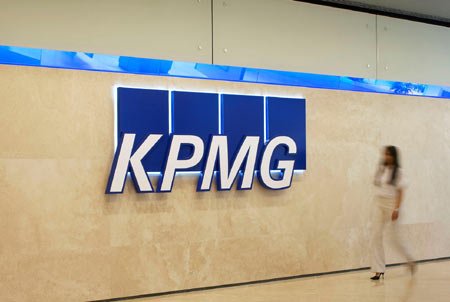COMPREHENSIVE ASSESSMENT: NON-PERFORMING EXPOSURES PREVENTING €2 TRILLION OF ADDITIONAL BANK LENDING, IMPACTING EUROZONE JOBS AND GROWTH, SAYS KPMG
Published by Gbaf News
Posted on October 29, 2014
4 min readLast updated: January 22, 2026

Published by Gbaf News
Posted on October 29, 2014
4 min readLast updated: January 22, 2026

European banks have almost €100bn of capital tied-up to support non-performing exposures (NPEs), which is impacting both their financial performance and contribution to the wider economy, according to new KPMG analysis.

Comprehensive Assessment: Non-Performing Exposures Preventing €2 Trillion Of Additional Bank Lending, Impacting Eurozone Jobs And Growth, Says KPMG
The professional services firm, which performed Asset Quality Review (AQR) projects for regulators and banks in almost every Eurozone country, analysed the recently announced Comprehensive Assessment results across the 130 in-scope banks.
This revealed that NPEs, or any obligations that are over 90 days overdue, impaired or in default, which are typically more expensive to manage than performing exposures and yet generate lower returns for the bank, totalled over €1.2 trillion at 31 December 2013.
For Eurozone banks, the Common Equity Tier 1 (CET1) capital required to support these exposures is estimated to be €96bn, representing approximately 10 percent of total capital for the sector. If this capital was freed up, it could support approximately €2 trillion of additional bank lending across Europe and increase their return on equity by 150 basis points.
Stephen Smith, co-head of KPMG’s AQR taskforce, said, “While the AQR focused on the quality of the balance sheet, the income statement remains a cause for major concern, as our analysis suggests that the cost of supporting non-performing exposures is contributing to the destruction of shareholder value.
“We have seen banks in the UK, Spain, Ireland and Germany all take meaningful steps to deleverage and exit both performing and non-performing segments of their balance sheet at record pace in 2014. This has had the effect of front running the impact of the AQR internally and in the market. We have seen an excess of €62bn (by face value) of loan sale transactions closed across Europe this year, however only c €7bn of these sales have taken place outside of these four markets.”
Geographically, Cypriot, Greek and Irish banks were most impacted, with an average of 46% 35% and 21% respectively, of capital tied-up in supporting NPEs. In contrast, Germany and France banks fared well with 7% and 5% respectively, due to lower NPE stocks.
Francisco Uria Fernandez, co-head of KPMG’s AQR taskforce, added, “These results are significant as this is truly the first time that it has been possible to compare NPEs across European banks.
“The Comprehensive Assessment has helped strengthen the European banking sector, considering the capital levels after both the AQR and the Stress Test. Banks are now in a better position to have a positive contribution to economic growth and job creation. However this is being prevented by the significant NPEs overshadowing the sector.
“From an economic perspective, the significant proportion of capital that is being locked-up supporting non-performing exposures is having an impact as this is reducing the banks’ profitability and what might be otherwise available to support growth opportunities across Europe.
“Moving forward, we anticipate that bank management teams will focus on NPE management and targeted portfolio sales and many will also be looking at their performing exposures to ensure they are truly profitable.
“The ECB’s Comprehensive Assessment’s results was the first step to the path to a sustainable European banking industry and the process is a foretaste of the supervisor’s data-driven approach. We can certainly expect to see greater transparency across the sector as it becomes increasingly comparable.”
Explore more articles in the Top Stories category











